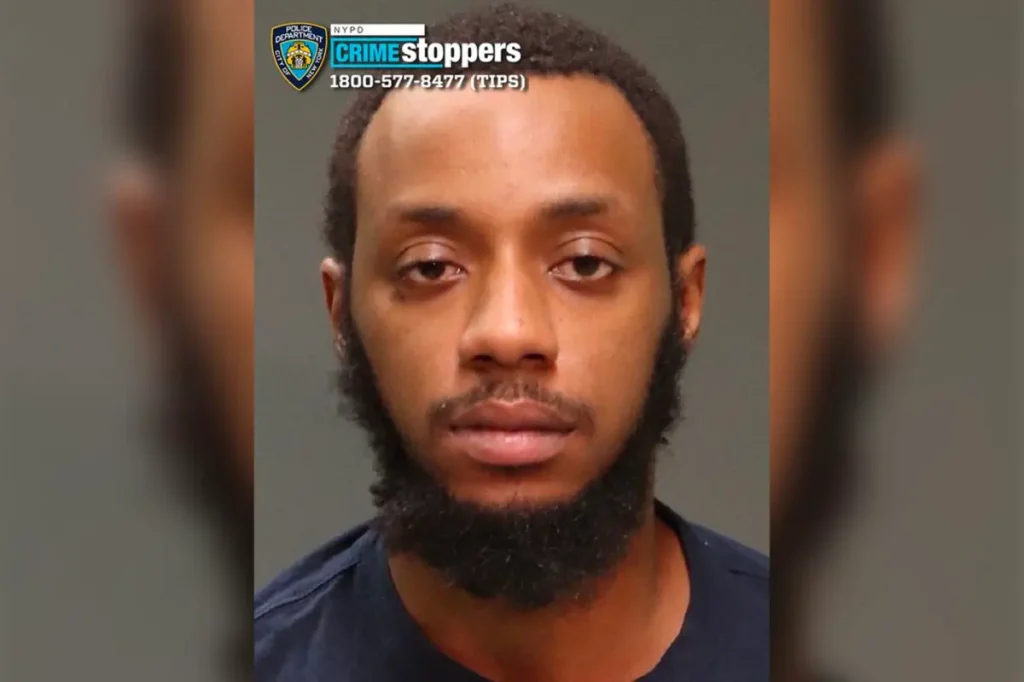The Troubling Case of William Credle: Online Predator and Repeat Offender
In a deeply disturbing case from the Bronx, 24-year-old William Credle stands accused of luring, drugging, and repeatedly raping a 15-year-old girl he met on Instagram. The allegations reveal a pattern of predatory behavior that has raised serious questions about how the justice system handles repeat offenders, especially those targeting minors online. This case highlights the growing dangers of social media platforms for vulnerable teenagers and the challenges of preventing recidivism in cases involving sexual crimes against children.
According to Bronx prosecutors, Credle initiated contact with the teenage victim through Instagram before arranging for a Lyft to transport her from New Jersey to his Belmont apartment. What followed was a nightmare scenario: upon her arrival, Credle allegedly took the girl to his bedroom, where he displayed a black firearm before pushing her onto the bed and sexually assaulting her despite her clear verbal protests. The prosecutor detailed how the victim repeatedly cried “No” and “Stop” during the assault. Following the initial attack, Credle allegedly had the victim consume marijuana and drink from a Snapple bottle containing what appeared to be orange soda but had a “strange aftertaste.” The victim reported feeling “woozy, dizzy, tired and nauseous” after consuming the substance, suggesting it may have been laced with drugs. Throughout the night, Credle reportedly hid the teenager’s tablet—her only means of communication—while allegedly molesting her multiple times as she pleaded, “I want to go home.”
What makes this case particularly troubling is that it represents an apparent pattern of behavior. Just a year earlier, in April 2022, Credle had pleaded guilty to sexual misconduct and sexual abuse in a strikingly similar case. In that incident, when he was 21 years old, he allegedly sent an Uber to pick up a 14-year-old girl and bring her to his apartment, where he forced her to engage in sexual acts. That victim also reported that Credle had drugs and a gun in his apartment. Despite the severity of these crimes, Credle was released following his guilty plea on the condition that he seek mental health and rehabilitative treatment—a decision that has now come under intense scrutiny in light of these new allegations. The parallels between the two cases suggest a calculated method of operation: using ride-sharing services to transport young victims across state lines, isolating them in his apartment, and allegedly using weapons and substances to facilitate the assaults.
Credle’s history with the justice system extends beyond these sexual assault cases. Law enforcement sources indicate a troubling pattern of violent behavior within his own family. In April 2022, he was arrested for allegedly threatening his 36-year-old mother with a knife. A year earlier, he faced charges for allegedly attempting to strangle his 13-year-old brother in their Bronx apartment. In September 2021, he was charged with assault for allegedly punching his mother in the head. This history of family violence, combined with his having skipped court appearances four times, paints a picture of an individual who has repeatedly evaded meaningful intervention despite numerous encounters with law enforcement. Despite this concerning background, Judge Harold Bahr ordered Credle held on $50,000 bail—significantly less than the $200,000 requested by the district attorney’s office—pending a return court date on November 18.
The defense for Credle, presented by attorney Abigail Bazin, has centered on his mental health issues rather than denying the allegations. “Mr. Credle does not pose a risk of flight to avoid prosecution,” Bazin told the judge, explaining that his previous failures to appear in court were “not because he’s fleeing prosecution but because he’s exceedingly mentally ill.” This defense strategy raises important questions about the intersection of mental health and criminal justice, particularly in cases involving predatory behavior toward minors. While mental health considerations are certainly relevant to both sentencing and rehabilitation, they must be balanced against the paramount concern of public safety, especially the protection of vulnerable children. The case highlights the ongoing challenge of determining when mental health treatment alone is sufficient and when incarceration is necessary to protect potential victims.
This disturbing case exists within a broader context of online predation and the challenges of keeping children safe in the digital age. Social media platforms like Instagram have become hunting grounds for individuals seeking to exploit minors, offering predators unprecedented access to potential victims across geographical boundaries. The use of ride-sharing services to transport minors across state lines adds another layer of complexity to these crimes, potentially involving federal trafficking statutes. As this case works its way through the justice system, it serves as a sobering reminder of the need for heightened vigilance by parents, educators, and platforms themselves to protect young people online, while also highlighting the critical importance of ensuring that individuals with demonstrated patterns of predatory behavior receive appropriate supervision and intervention to prevent future victims. The outcome of Credle’s case may prove influential in shaping how similar cases are handled in the future, potentially leading to reforms in how repeat offenders in cases involving minors are monitored and managed within the criminal justice system.











